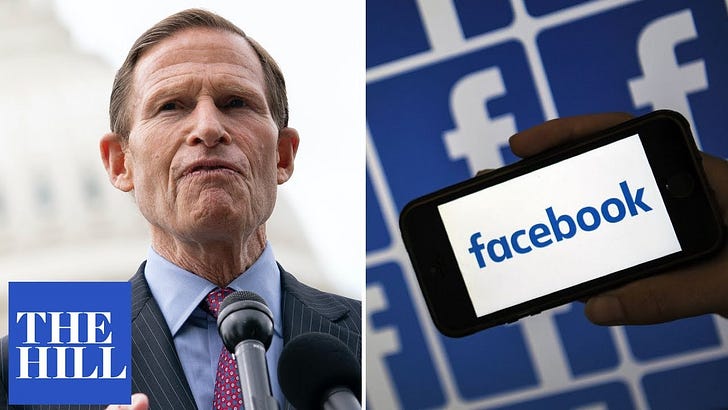Whistleblower Compares Facebook With Big Tobacco
"A company with such frightening influence over so many people, over their deepest thoughts, feelings and behavior, needs real oversight," former Facebook manager tells senators
The move, a generation ago, for state attorneys general to sue the large tobacco companies for the harm caused by cigarettes would become something a sea-change in the relationship between cigarette manufacturers and society.
It's time for a similar moment for Facebook and social media, according to a former Facebook product manager-turned-whistleblower.
Frances Haugen, the whistleblower who appeared Sunday in a prominent interview on the CBS News program, 60 Minutes, took her message to Capitol Hill Tuesday by appearing before a Senate committee.
Haugen is taking her former employer to task for its role in spreading misinformation as well as for harming children.
Her public statements come during the same week that Facebook suffered an embarrassing and costly outage across the globe on its flagship service, as well as Instagram and WhatsApp.
“When we realized big tobacco was hiding the harms it causes, the government took action. When we figured out cars were safer with seat belts, the government took action. And when our government learned that opioids were taking lives, the government took action. I implore you to do the same here,” Haugen told senators. “Today Facebook shapes our perception of the world by choosing the information we see. Even those who don‘t use Facebook are impacted by the majority who do.
“A company with such frightening influence over so many people, over their deepest thoughts, feelings and behavior, needs real oversight. But Facebook‘s closed design means it has no real oversight,” she added. “Only Facebook knows how it personalizes your feed for you. At other large tech companies like Google, any independent researcher can download from the Internet the company research result and write papers about what they find, and they do.
“But Facebook hides behind walls that keep researchers and regulators from understanding the true dynamics of their system. Facebook will tell you privacy means they can‘t give you data. This is not true,” Haugen said. “When tobacco companies claimed that filtered cigarettes were safer for consumers, scientists could independently invalidate these marketing messages and confirm that in fact they posed a greater threat to human health. The public cannot do the same with Facebook.”
By hiding data, Facebook is hiding important information from the public, Haugen said.
“We are given no other option then to take their marketing messages on blind faith. Not only does the company hide most of its own data, my disclosure has proved that when Facebook is directly asked questions as important as, 'How do you impact the health and safety of our children?' they choose to mislead and misdirect. Facebook has not earned our blind faith,” she said.
Do you find this post of value?
Please share it…



